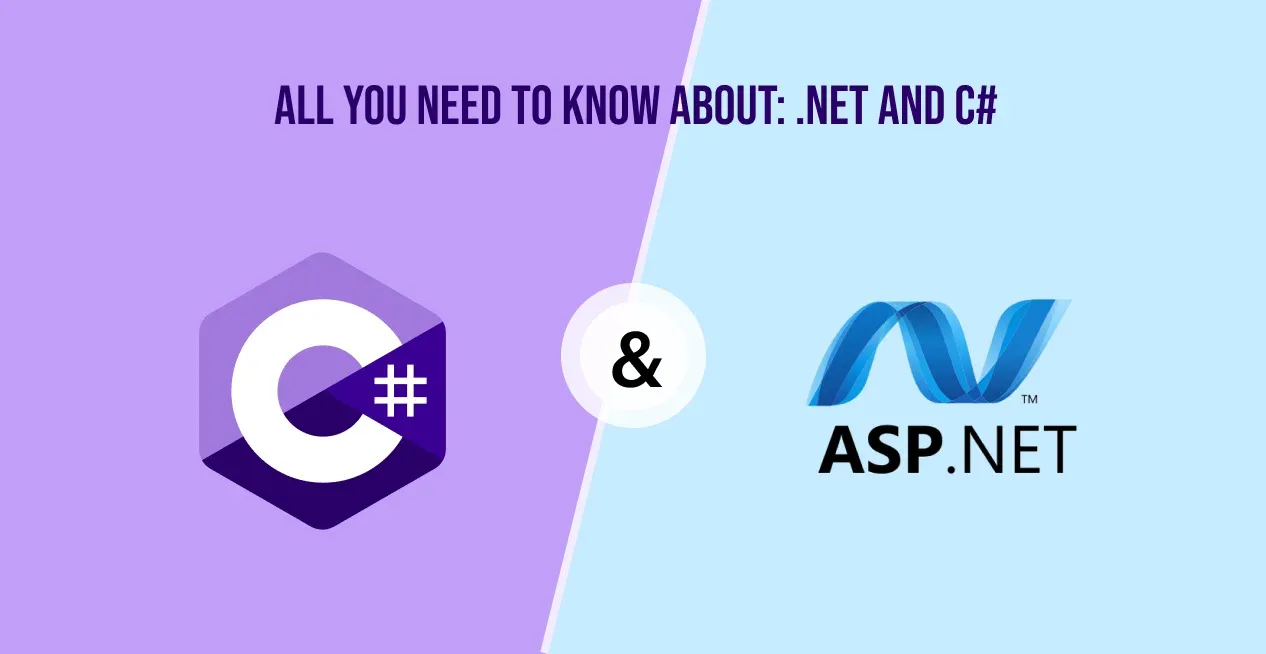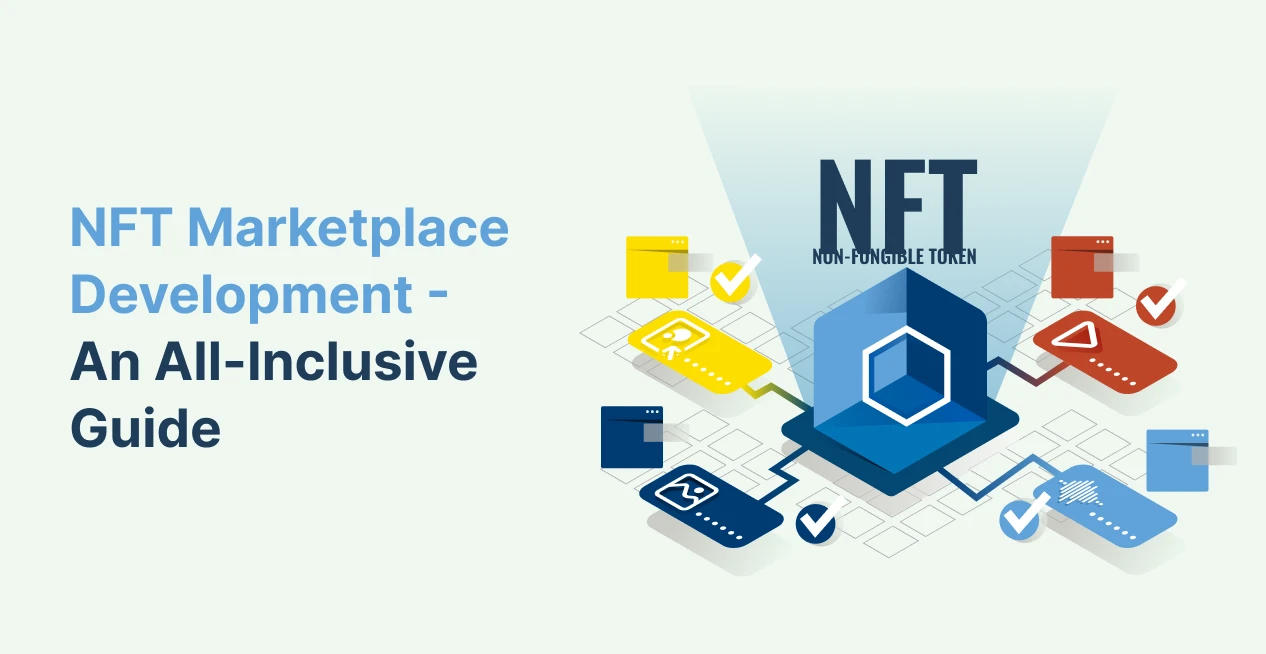Navigating the dynamic landscape of modern software development often brings us to the crossroads of choosing the right technologies. In this exploration, we delve into the realms of .NET vs C#, two cornerstones in the development ecosystem.
Understanding the distinctions between the .NET framework and the C# programming language is crucial for making informed decisions in crafting robust and scalable applications. Join us on a journey where we unravel the intricacies of these technologies, helping you navigate the path to optimal development choices.
What Is .NET?
Microsoft released the. NET Framework in 2002 as a platform for building Windows applications. NET Framework is still fully maintained by Microsoft as version 4.8 today. If .NET had to be summed up in a single sentence, it is a free, open-source, cross-platform platform for developers to create a wide range of applications.
Just like many other technologies prevailing, one may experience having few advantages as well as drawbacks; let’s take a deep dive into it.
.NET Pros and Cons
Pros of .NET
- Dependable and powerful platform for developing applications.
- Flexibility is a benefit that cannot be avoided.
- Active community with six million .Net developers across the globe. Easy support & help with any issue.
- Enforcing security and safety. It mandates permissions and stops harmful programs from accessing your data.
- Memory management is challenging in programming languages, but this framework allows simple caching programs.
- Extremely versatile and user-friendly because it is based on an open-source environment.
- Offers a range of tools for automating a wide range of processes.
- Cross-platform because it supports multiple programming languages.
- Easy to maintain with the help of development tools.
Getting in touch with the techie experts at Openxcell, the leading .Net Development Company in India & USA, helps you reap the benefits of all of the above.
Cons of .NET
- It can cost a lot to migrate your application from DotNet.
- Its integration has a constrained development environment because it operates on Windows.
- Memory-related and memory leak issues will likely arise.
- The cost of a license is high. Tools that are not free need to be purchased.
Dot Net Main Characteristics
1. Support for Language Interoperability
The ability of code to communicate with other code written in a different computer language is known as language interoperability.
2. Type Safety
This characteristic aids in ensuring that all objects, values, and pointers to those objects, values, and references have a valid type.
3. Easy support for multi-threading
Running many pieces of code (methods) concurrently is known as multi-threading.
4. Dynamic Language Runtime
A runtime environment that adds a set of services for dynamic languages to the common language runtime.
5. Automatic Memory Management
This method involves the automatic management of memory allocation and deallocation by an operating system or application.
6. Hosting side-by-side execution
Multiple versions of an application or component can be used simultaneously on the same computer.
7. Security
This platform features type safety, code access security, etc.
Features of .NET
Microsoft .NET provides immaculate features to users. The framework was designed & developed with a futuristic approach that ought to be useful for developers in the future. The features of .NET are as follows:-
1. Common Executive Environment
All .NET applications run within the common language runtime, a common execution environment. It executes the code and offers assistance with development-related processes.
2. Supports Multiple Languages
It supports many languages. This code is compiled from IL and is interoperable with code in other languages.
3. Tool Support
The work process for developers is made simpler by the Common Language Runtime (CLR), which works collectively with tools like Visual Studio, compilers, debuggers, and profilers.
4. Supported by OOPS
The OOPS ( Object Oriented Programming) environment is a core ingredient of the .NET framework. Various OOPs concepts allow us to design working methods and variables that may be reused entirely or in part without jeopardizing the application’s security issues.
5. Easy error monitoring support
The stalk walking feature of the runtime makes it much simpler to find problems and errors. If an exception occurs while the programme is running, it stops, and the IDE marks the line with the appropriate information & fixes.
6. Enables automatic memory management
Memory leakage is the main cause of application failure. It manages its memory independently, whereas garbage collectors collect unused things to free up memory.
7. Portable by nature
The applications which are developed in the .NET environment are portable. A machine-independent and intermediate code are produced when a program’s source code is written in a CLR-compliant language. The key to portability in.NET is CIL (Common Intermediate Language).

What Is C#?
In its early 20s, this programming language was a young edition. In 2000, Danish software engineer Anders Hejlsberg of Microsoft created this programming language. It is a .NET Framework-based object-oriented programming language. It belongs to the C family, along with Java and C++.
The most recent version of C# is 11.0, which was released in November 2022.
C# Pros and Cons
Let’s quickly review some of the benefits and drawbacks of this programming language:
Pros of C#
- Easily transferable to other languages like JAVA, PHP, and C++
- Very simple to understand. It is fast & efficient to code programs.
- In-built with many system-generated functions and user-defined functions.
- More efficient and effective solutions compared to those created by other programming languages.
- Compared to other programming languages, it executes more quickly.
- Operates effectively under several operating systems, including Windows, Linux, Android, and iOS.
- The use of algorithms and data structures in C has resulted in incredibly rapid and fluid program calculations.
- Speedy compilation of code.
- Facilitates easy debugging.
- There is no need for pointers in C#.
Hire & Choose the best C# Development Company, OpenXcell, in India & USA. Work with our IT specialists to make your project easier.
Cons of C#
- Isolates object-oriented programming as it follows a simple procedural programming approach. It doesn’t support the concepts of OOPs.
- Inefficient memory management.
- The code in C# needs to be compiled every time a change is made. It results in bugging & errors if not checked every time.
- It needs the Windows platform to execute because it’s a part of the .NET application.
- With the latest upgrade in the operating system of .NET frameworks. The server must be in windows since C# is a part of it.
- Need to put syntax that is a semicolon at the end of each code.
C Sharp Main characteristics
1. Flexible in nature
Code can be written in both safe mode & unsafe mode.
2. Supports versioning
It is an application that can run with the evolving versioning system. Applications can be compatible with both source code and binary code.
3. Compatibility
It refers to the capability of compiling or running code on a version of a .NET implementation other than the one with which the code was originally developed.
4. Maintains garbage collection
It controls how memory is allocated and released.
5. Ability to exceptional handling
It is a mechanism in .NET to detect and handle runtime errors.
6. Facilitates security
It provides certain in-built security features.
7. It is object-oriented
It supports major object-oriented programming features such as data encapsulation, inheritance, and polymorphism.
Features of C#
Some of the vital unique features of C# make it distinct from other programming languages. Let’s take a glance over the same:-
1. High-speed performance
C# is fast. This programming language is quick, even during compilation & execution as well.
2. Simple & easy to understand
The organized approach of C# divides problems into manageable pieces. It has a wide variety of data types and library functions.
3. Modern programming language
C# is a modern, innovative, open-source, cross-platform, object-oriented programming language.
4. Automatic scalable and updateable
It is a programming language that is automatically scalable and updatable. We can remove the outdated files from it and replace them with the most recent versions.
5. It is a structured programming language
Using functions, we can split the program. Consequently, by doing so, it is simpler to comprehend and modify.
6. Versatile & rich library
C# is a programming language rich in libraries. The inbuilt functions make development faster.
7. Component-oriented programming language
It is a component-oriented programming language that is easy to understand and modify.

C# vs .NET: Head To Head Comparison
C# and .NET are both essential in the Software Development Industry. Here is a quick glimpse of head to head comparison between the two:-
| .NET | C# |
| It is a developer platform | It is a programming language |
| It is a framework that primarily operates on Windows. | This programming language is object-oriented. |
| It is used to develop Microsoft-based applications. | Its usage is for desktop-based application development. |
| Implicit inheritance can’t be implemented here. | Can be implemented. |
| Difficult to learn | Easy to learn |
| Supports coding in C# | A part of .NET ecosystem |
.NET vs C#: Key Differences

Knowing the meaning, their pros and cons can highlight the difference easily, but why limit ourselves to knowing more? Let’s get deep into the major differences between C# and .Net.
1. Working structure
The C# programming language has a definite format for its working procedure, like having specific syntax. It provides rules for keywords, the placement of semicolons, and the declaration of statements. In contrast, .NET is a framework where the library contains thousands of classes that are ready to use out of the box.
2. Different usage
An enormous range of Windows-based applications can be created with .NET. While desktop programs are developed using C#.
3. Purpose
C# allows for multipurpose development of desktop, web, and gaming applications. On the other hand, the .NET framework satisfies the need to serve as the ultimate backend + frontend platform and cloud mobile & web development.
4. Complexity levels
C# belongs to the C family and becomes simple & easy if you already know C++. The complexity level is more in .NET because of modules, layers & languages.
5. Support
Both are developed by Microsoft; C# has sizable support from the MSDN community, whereas.NET has sizable support for regular upgrades. The MSDN & IBM Communities offer extensive support.
6. Architecture
In C#, the basic architecture is implemented on the .NET platform, whereas, in .NET, class libraries include Windows forms.
Are you intending to use C# or .NET for your project? We’re prepared to take on the challenge of your Software Development, App development, and mobile app development. Direct your worry to us!
C# vs .NET: The Similarities
1. Both are open source
C# is a contemporary, cutting-edge, open-source, and cross-platform object-oriented operating language. As opposed to this, .NET is a managed, free, and open-source computer software framework for Windows, Linux, and other operating systems.
2. Developed by Microsoft
C# and .NET are both developed by Microsoft.
3. No separate runtime library
C# does not have a separate runtime library. It uses .NET as a runtime library.
4. C# a part of .NET
.NET has various languages under it. C# is one of the prime languages in the .NET framework.
List of Companies That Use .Net and C#
Microsoft created .NET for its product & service ecosystem. Today, however, it has raised the bar for excellence by setting a benchmark for other software developers in producing new applications. Now, many businesses are using .Net, becoming tech giants around the globe.
Who Uses .Net
- Samsung
- Microsoft
- JP Morgan Chase
- Intel
- Cisco
- Dell
- Capgemini
- GoDaddy
C# is the fastest-evolving programming language that is utilized extensively worldwide. The feature of continuous updating supports contemporary workloads.
Who Uses C#
- Delivery Hero
- Stack Overflow
- Trustpilot
- Venmo
- PedidosYa
- VTEX
- Clear Bank
- Bagel Code
.NET vs C#: Navigating the Choice for Optimal Development
When to choose .NET?
- One can pick .NET for cross-platform needs if you need to run your web or service application on multiple platforms. For example, Windows, Linux, and macOS.
- In the case of microservice architecture. It allows a mix of technologies across a service boundary.
For example, you can mix services or microservices using the.NET Framework, Java, Ruby, or other monolithic technologies. - If you are looking for high-performance and scalable systems for your system, .NET is the best option.
When to choose C#?
C# is incredibly flexible and may be used to create a wide range of programs and applications across three fields. It is applicable to developing games, Windows apps, and web applications.
- NET and other open-source platforms can be used to create dynamic websites.
- It is often used to create Windows programs. Your development process becomes more efficient.
- Your fan-favorite games can be easily built using this programming language.
.NET vs C#: Final Thoughts
We can conclude that these two significant languages & frameworks have their relevance in their own ways after taking into account all the above-mentioned criteria. Every developer should consider all the described factors because it depends on the type of project needed, work time, and other discussed aspects.
Want to hire the best .NET development company or C# Development Company in India & USA? Contact us and discuss your project with the right talented professionals. Reach your goals!








